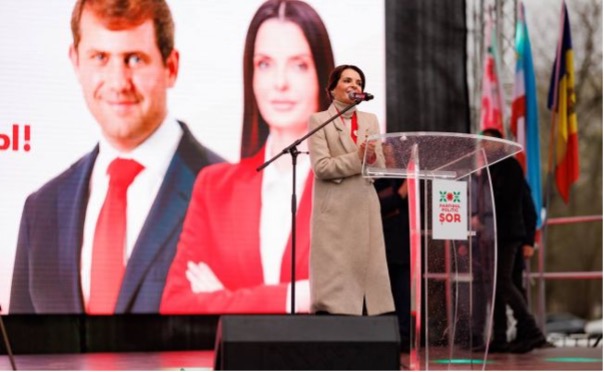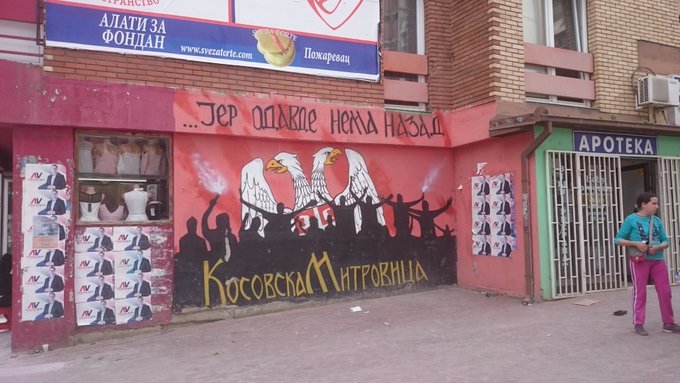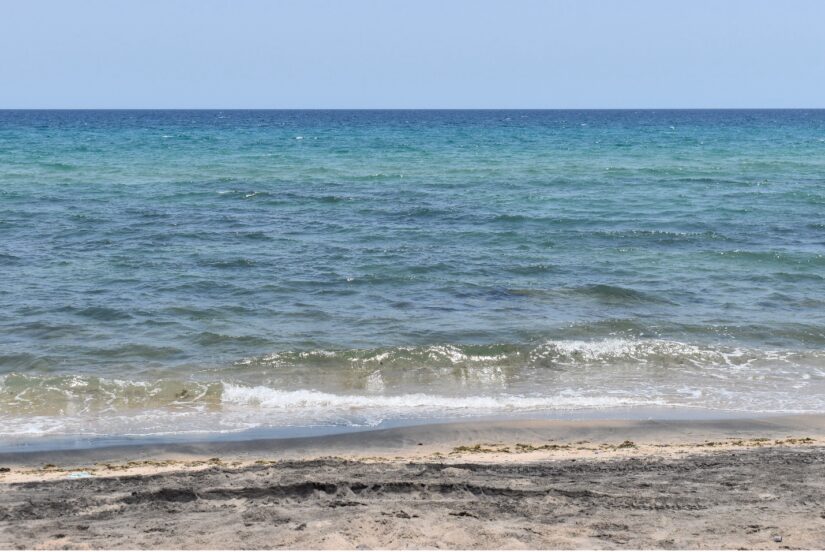Gagauz Elections: A New Avenue for Russian Interference?
On April 30, residents of the predominantly pro-Russian Autonomous Territorial Unit of Gagauzia in southern Moldova will elect a new Governor – bashkan. In the context of the ongoing war in Ukraine and Russia’s continuous efforts to destabilize Moldova, these may be the most important elections held in Gagauzia.
Over the past three decades, Gagauz have regularly come into conflict with Moldovan central government in Chișinău. Tensions between Chișinău and the Gagauz rose exponentially in the late 1980s and early 1990s as it became increasingly clear that Moldova would secede from the Soviet Union. Hoping to remain under the control of Moscow, a Gagauz separatist movement emerged in the late 1980s, led by a group known as the Gagauz Halki (Gagauz People). In August 1990, the Gagauz declared independence from Moldova, after Chișinău formally rejected their plea for autonomy.
Gagauzia was peacefully reintegrated into Moldova in 1994 after the country’s parliament passed the “Law on the Special Legal Status of Gagauzia”. The law mandated that any territory where over fifty percent of the local population was Gagauz would be automatically included in the newly created Autonomous Territorial Unit of Gagauzia. It also allowed regions with less than fifty percent Gagauz people to join following a referendum. As a result, Gagauzia, an autonomous region in southern Moldova with non-contiguous borders, was created. Gagauzia was granted considerable rights and virtual control over all matters except defence and monetary policy. An executive branch, led by the Governor, and a legislative assembly, known as the People’s Assembly of Gagauzia, were created.
However, tensions between Gagauzia and Chișinău did not evaporate once the region was granted autonomy, and tensions between the pair periodically flared up. Over the past three decades, the authorities in Chișinău have oscillated between a pro-European and pro-Russian position. On the contrary, the authorities in Gagauzia and the region’s population have remained unequivocally pro-Russian. Whenever Moldova’s ruling authorities adopt a pro-European position, the Gagauz respond harshly. For example, in 2014, following the signing of an Association Agreement between Moldova and the European Union, the regional authorities in Gagauzia organised an illegal referendum—voters were asked whether they supported integration with the EU or the Russian-led Eurasian Economic Union. Unsurprisingly, the vast majority voted for the latter.
It should come as no surprise then that relations between the central government in Moldova and the regional authorities in Gagauzia have become increasingly strained since Russia’s invaded Ukraine in February 2022. Moldova’s pro-European ruling party, the Party of Action and Solidarity (PAS), and incumbent president, Maia Sandu, have firmly sided with the West, condemning Russia’s actions and reaffirming their support for Ukraine’s territorial integrity. This has not sat well with Russian President Vladimir Putin, who believes Moldova belongs firmly within Russia’s sphere of interest. For the past year, the Kremlin has attempted to destabilize the country by hiking gas prices, banning imports, sponsoring protests, and even allegedly planning a coup.
This has made life increasingly difficult in Moldova and reignited tensions with the Gagauz. Many residents in the predominantly pro-Russian region solely blame Moldova’s government for their current hardship. Moreover, the Gagauz have reacted negatively to attempts by the Moldovan government to limit Russia’s influence in the country, with outlawed symbols still on display and banned television channels being broadcast. For the past year or so, Gagauzia has found itself in a delicate position. A considerable number of pro-Russian figures in the People’s Assembly seem intent on fuelling unrest and attempting to restore relations with Moscow, even if it is on a bilateral basis.
However, these pro-Russian figures have been restrained by the incumbent Governor, Irina Vlah, who has generally presented herself as a moderate. While Vlah has found herself at odds with President Sandu, the current Governor of Gagauzia has refrained from praising Putin or calling for closer ties with Russia. The elections of April 29 may jeopardize this unstable equilibrium. Vlah has already served two terms as Governor and will not participate in the upcoming elections. Additionally, there a several figures running in the election who are attempting to manipulate the growing unrest surrounding deteriorating living conditions for their own gains. These candidates have adopted an unequivocally pro-Russian position. They have promised that once elected, they will forge closer ties with Moscow and presented this as the solution to all the region’s problems. There are currently eight candidates registered to participate in the upcoming elections. However, as it stands, there are three that have a considerable chance of winning, the pro-Russian populists Viktor Petrov and Evgenia Hutsul and the more moderate Dmitrii Croitor.
Viktor Petrov is a notoriously opportunistic politician and currently representative in the People’s Assembly. In June 2022, Petrov formed the People’s Union of Gagauzia, a pro-Russian populist group. The group employs rhetoric remarkably similar to that used by Gagauz separatists in the late 1990s. Petrov has accused Chișinău of discriminating against minorities and called for Russian to be made the country’s second official language, just as the Gagauz Halki did.
Since its formation, Petrov and his union have continuously supported Russia in its conquest of Ukraine and criticised the incumbent government for severing ties with Moldova’s “oldest friend”. In an interview posted on his Telegram channel, Petrov questioned who the actual perpetrators of the infamous Bucha massacre were and criticized President Sandu for accusing Russia “before all the facts were known”. Responding to claims by the Kremlin that Ukraine would attack Transnistria, the People’s Union of Gagauzia issued a statement condemning the Ukrainian armed forces for “planning provocations against Moldova”.
For the past several months, it has been clear that Petrov intended to use the People’s Union to increase his popularity before the upcoming Governor elections. Unsurprisingly, the pro-Russian stance of the People’s Union has transferred into Petrov’s election campaign. Petrov has made grandiose promises, such as increasing Gagauzia’s budget fivefold in two years, but needs to provide concrete details of how this might be achieved. Nevertheless, he is adamant that restoring “fraternal relations” with Russia will solve all the region’s problems. Throughout his campaign, Petrov has promised he will restore ties with Moscow and ensure that negotiations between Chișinău and Gagauzia occur on an equal footing. He has attempted to present himself as Russia’s “man” in the race. The People’s Union praised Petrov for partaking in a delegation sent by the People’s Assembly to meet with Russia’s ambassador to Moldova. However, when it appears that Russia has opted to support Evgenia Hutsul and not Petrov.
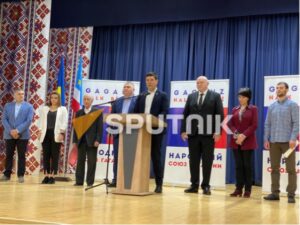
Image: Petrov announcing his candidacy
Hutsul is a member of the Shor Party, a controversial pro-Russian populist party led by exiled tycoon Ilan Shor, who was recently sentenced to fifteen years in absentia for his part in the theft of one billion dollars in 2014. As tensions between Moldova and Russia continue to deteriorate, the Kremlin has chosen the Shor Party as one of its main tools for destabilizing Moldova. Before the war, the Shor Party was relatively obscure, and the Kremlin preferred to rely on either the Party of Socialists of the Republic of Moldova or the Communist Party. However, since the war began, the Kremlin has pumped large amounts of money into the Shor Party, which the latter has used to organize large-scale demonstrations in Chișinău regularly.
Hutsul announced her candidacy in Comrat, Gagauzia’s regional capital. Joined on stage by Marina Tauber, another controversial member of the Shor Party accused of fraud, Hutsul promised she would revitalise Gagauzia. Shor then appeared on a large screen set up on the stage to address the crowd. Shor promised that if Hutsul were elected, she would create 7,000 new jobs, build modern hospitals and apartments, and open a Gagauz representative office in Moscow. Perhaps most bizarrely, Hutsul’s campaign announcement was accompanied by a video that showed how Comrat would look if she were elected. In the video, the city was transformed from a relatively impoverished city to a modern, if not futuristic, regional capital, complete with its own railway and airport. Comrat’s centre was also renovated, with a monument to Hutsul.
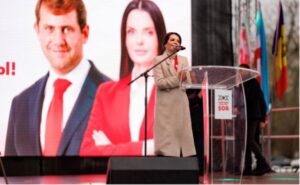
Image: Evgenia Hutsul in Comrat
As part of their campaign, Hutsul has travelled to Gagauzia’s other urban centres, displaying her video on a large screen. Recently, a slew of Russian singers that are popular in Gagauzia have also publicly endorsed Hutsul, promising that she will turn Gagauzia into a “land of dreams”. Naturally, such intensive campaigning costs money. However, in the financial reports submitted to the election commission, Hutsul claimed she had received no funding for her campaign. This strange declaration is somewhat unsurprising, considering Hutsul is connected to the Shor Party, which, as noted above, has been accused of taking illicit money from the Kremlin.
The most prominent moderate candidate running in the race is Dmitrii Croitor. Between 1999 and 2002, Croitor served as Governor of Gagauzia, and since 2020 he has been Moldova’s ambassador to Turkey. This latter point is significant, as although heavily Russified, the Gagauz are a Turkic ethnic group, and Istanbul has invested heavily in the region. Throughout his campaign, Croitor has promised to address many of the most pressing issues affecting Gagauzia, such as the increased cost of living, the mass exodus of young people, and poor infrastructure. However, unlike Hutsul and Petrov, Croitor has not presented Russia as the solution to all Gagauzia’s problems. For example, while Petrov and Hutsul have claimed the best way to lower energy prices is to improve relations with Russia, Croitor has promised to look into renewable energy.
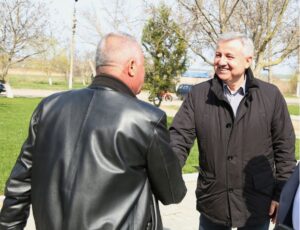
Image: Croitor on a meeting with residents of Gagauzia
The Moldovan government has acknowledged that the stakes are high in Gagauzia. President Sandu recently stated that she hopes the next Governor will not work in the interests of Russia. Foreign Minister Nicu Popescu elaborated further, claiming that Gagauzia plays an important role in Russia’s overall goal of establishing itself as a regional hegemon and that both Moscow and Chișinău would follow the election with great interest.
Whether the electorate will vote for the more moderate Croitor or if circumstances will cause them to vote for Petrov or Hutsul remains to be seen. As a local commentator, Ruslam Kasym, pointed out, Gagauzia has an aging population who respond more positively to the pro-Russian propaganda of Petrov or Hutsul. The region’s elderly population is far more concerned with short term benefits, such as lowering gas prices and increasing subsidies, as promised by Petrov and Hutsul, than investing in renewable energy and establishing an IT sector, as proposed by Croitor.
The elections on April 30 are of paramount importance, as they will not only determine the course of relations between Chișinău and Gagauzia for the next five years, but the election of Hutsul or Petrov could upend the delicate balance of power and provide another avenue for Russia to destabilize Moldova.
Author: Keith Harrington


